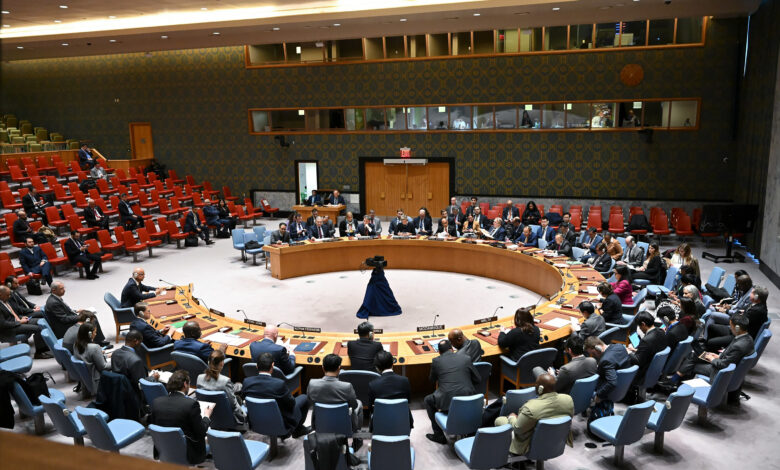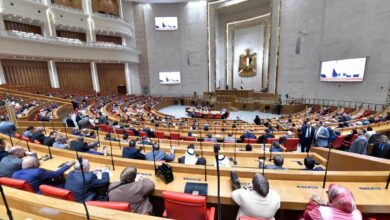
Days ago, we discussed the strong likelihood of Palestine’s application for full UN membership being rejected.
This prediction proved to be accurate when the draft resolution submitted by Algeria, recommending the General Assembly “to admit the state of Palestine as a member of the United Nations,” was put to a vote. The resolution received 12 votes in favor, but was vetoed by the United States.
The remaining two members, the UK and Switzerland, abstained.
What stood out was the media escalation in the days leading up to the vote, which created a false impression among some parts of the public that there was a chance the resolution would pass. The issue occupied a significant amount of time on television screens, and many politicians, analysts, and experts had their say.
I believe this atmosphere wasn’t appropriate, as the outcome was not up for speculation.
While it is true that around 140 countries recognize Palestine as a state, this recognition does not translate to full international legitimacy without the approval of the UN Security Council.
Such legitimacy would require a vote in the General Assembly to recognize Palestine as a full voting member.
The US explained its decision to veto the Palestinian membership resolution by stating that it does not imply opposition to the existence of a Palestinian state.
According to the US Secretary of State Antony Blinken, the US believes that such a state should only be established through direct negotiations between Israel and the Palestinian Authority, rather than through a UN-led process. The US exercised its veto power against the draft resolution, which recommended that the 193-member UN General Assembly “admit the State of Palestine as a member of the United Nations.”
As expected, there were angry reactions – or at least feigned anger – as if the US’ position or this outcome was somehow unexpected.
The Palestinian presidency condemned the US veto of the draft resolution.
A statement from President Mahmoud Abbas’s office said that the US veto was, “unfair, unethical, and unjustified” and that “this aggressive US policy towards Palestine, its people, and its legitimate rights is a flagrant assault on international law, encourages the continuation of Israel’s genocidal war against our people …and further pushes the region to the brink of the abyss.”
The statement also said that the veto, “Exposes the contradictions of US policy, which claims to support the two-state solution while preventing the international community from implementing it.”
Once again, it seems as if the US position was a surprise.
Other countries expressed regret over the Security Council’s failure to adopt a resolution granting full UN membership to the State of Palestine. They maintained that recognition of the State of Palestine and granting it full UN membership is an inherent right of the Palestinian people.
I believe this predictable outcome could serve as a new starting point to revive the idea proposed by Egypt several months ago to declare a Palestinian state unilaterally, followed by maneuvers and attempts to impose a new de facto reality. Even if this idea does not seem destined for immediate success, it appears to be a move that helps create a new reality.
However, such a step requires a coordinated and unified Palestinian position, which seems like an impossible task.




